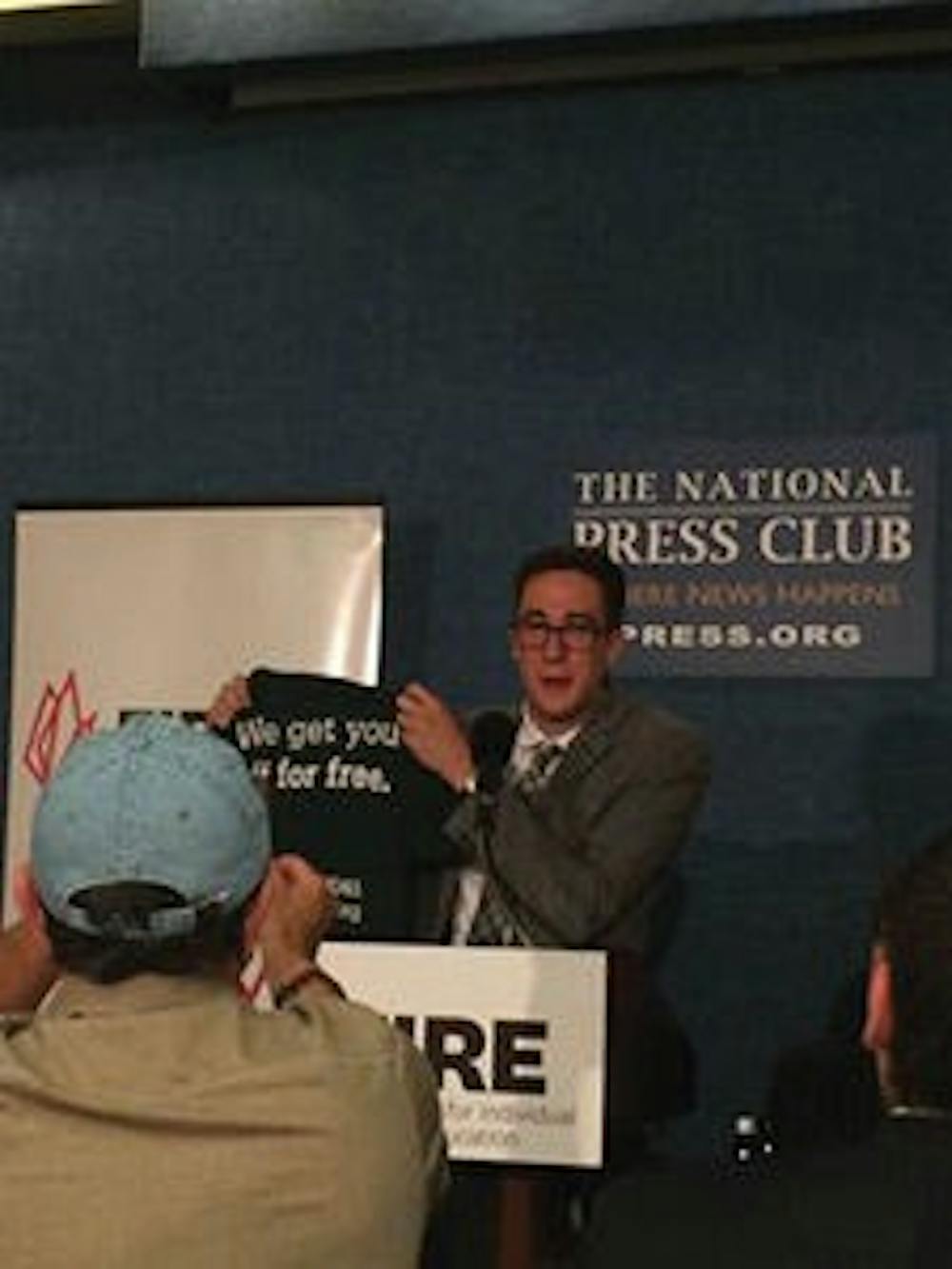University officials respond to Isaac Smith’s free speech lawsuit, but the lawsuit may not reach court.
Ohio University has responded to Isaac Smith’s July 2014 student free speech lawsuit — though the likelihood of this case reaching a judicial courthouse is slim.
The case began at the August 2013 Campus Involvement Fair when Ohio University officials allegedly ordered Isaac Smith, associate director of Students Defending Students, and other members of the organization not to wear a shirt printed with the words “We get you off for free.”
“Typically these cases don’t end up going to court. They end up settling,” Frank LoMonte, executive director of the Student Press Law Center, said. “If this went in front of a judge, I don’t think there would be any question that a judge would find a joke about sex constitutionally-protected speech.”
OU officials said the slogan was “offensive,” “objectified women,” and “promoted prostitution,” according to Smith’s filed complaint against OU officials.
Ohio University officials have denied they told Smith or the organization, a subsidiary of the campus Student Senate, to stop wearing the shirt. In a response to Smith from Assistant Attorney General Reid Caryer filed in October, he stated the university Student Code of Conduct “speaks for itself,”
OU President Roderick McDavis, Dean of Students Jenny Hall-Jones and Martha Compton, director of the Office of Community Standards and Student Responsibility, are named in the suit.
Smith, a senior pursuing a Bachelor of Arts degree in political science and Spanish, filed a lawsuit last July after university officials allegedly told students to stop wearing the T-shirts, citing that such actions were “restricting and chilling student speech.”
The organization did not use public or university funds to pay for the shirts, Smith said. Instead, the group paid for the shirts with money collected from members.
Smith is now seeking monetary damages and a declaration from the court that OU’s speech code is unconstitutional, according to Smith’s complaint
“This lawsuit defends the important principle that public universities must welcome all speech, not just expression that is easy to hear or makes people feel good,” Katie Barrows, communications coordinator for the Foundation for Individual Rights in Education, said of the case. “University officials cannot restrict speech by students simply because they may be offended.”
Barrows is one of Smith’s legal representatives at the foundation, a national nonprofit that helps defend students’ civil rights on college campuses. Barrows said her organization “believes that the lawsuit will be resolved in a manner that ensures students' freedom of expression at Ohio University.”
LoMonte is confident that this case of student free speech will be settled out of court. He said it is likely not in Ohio University’s interest to see this case go to court.
“What they don’t want to do is spend the next two years and tens of thousands of dollars on a losing battle,” LoMonte said. “It’s probably injuring their reputation more if they become known as a school that overreacts to harmless jokes.”
Both Smith and Hall-Jones were unable to comment on the pending litigation.
bb308113@ohio.edu






